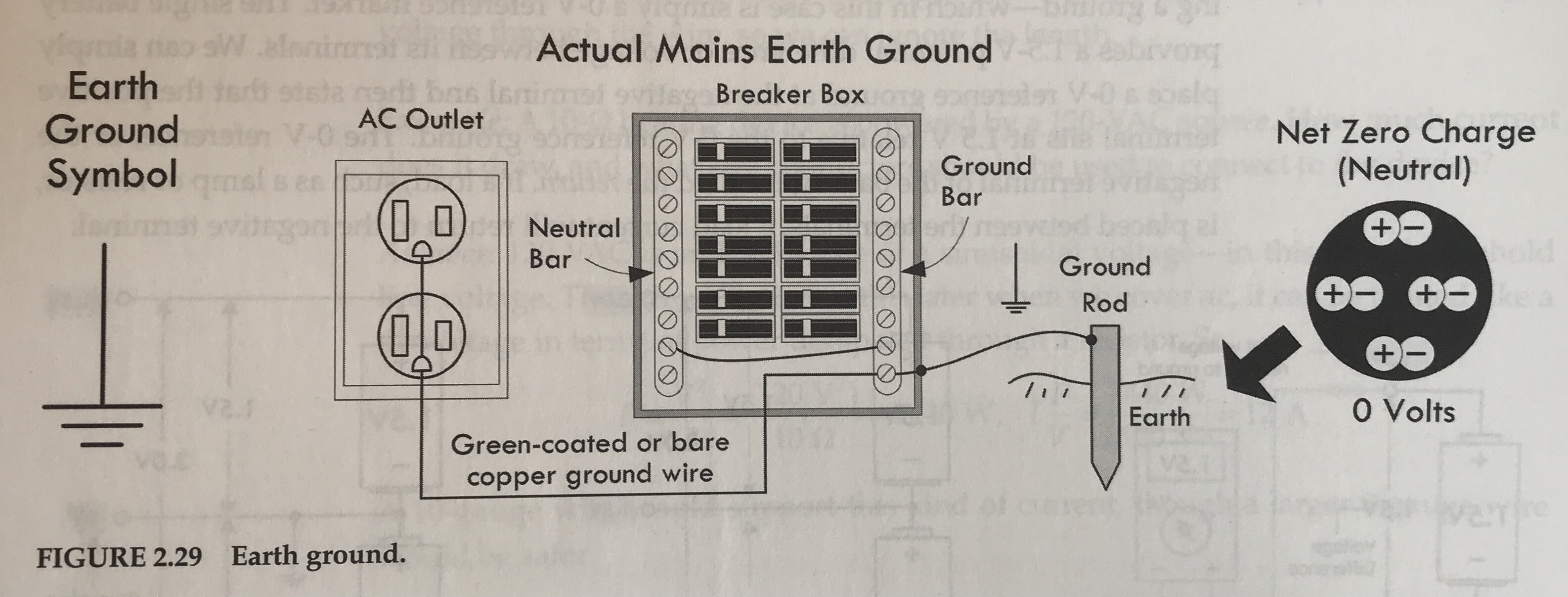Ground
Ground¶
- earth ground¶
a connection terminated at a rod driven into the earth to a depth of 8 ft or more.
In buildings, the mains breaker box ground bar is wired directly to an earth ground rod. AC outlets throughout the house access this ground by wiring to the mains breaker box ground bar and making the ground connection available at the ground socket.

Fig. 2 earth ground¶
The earth provides an electrically neutral body (equally distributed + and - charge throughout). Practically, the earth provides infinite neutrality. Any introduction of new charge into the earth is quickly absorbed (the earth’s moist soil is usually very conductive). The earth’s potential is virtually immune to wavering and can therefore be defined as zero potential. This makes the earth a convenient and useful potential on which to reference other signals. In neurophysiology, we often reference to ground for measuring neural potentials. By connecting various pieces of electronics equipment to the earth ground, they can all share the earth’s ground reference potential, and thus all devices share a common reference.
All grounded pieces of equipment share a common ground. To prove this to yourself, try measuring the resistance between the ground terminals of any two separate pieces of equipment in the lab. If devices are properly grounded, you will get a measurement of (usually nearly) zero \(\omega\).
Grounding also reduces the risk of electrical shock. Your body is a more resistive path than ground. If a piece of equipment fails and the chassis (its container) becomes hot (charged), then the current to ground will pass through the path of least resistance. You want the path of least resistance to be a ground wire rather than your body if you touch it.
- floating¶
not connected to ground
Floating signals are particularly risky in terms of shock hazard because they are not connected to ground.
